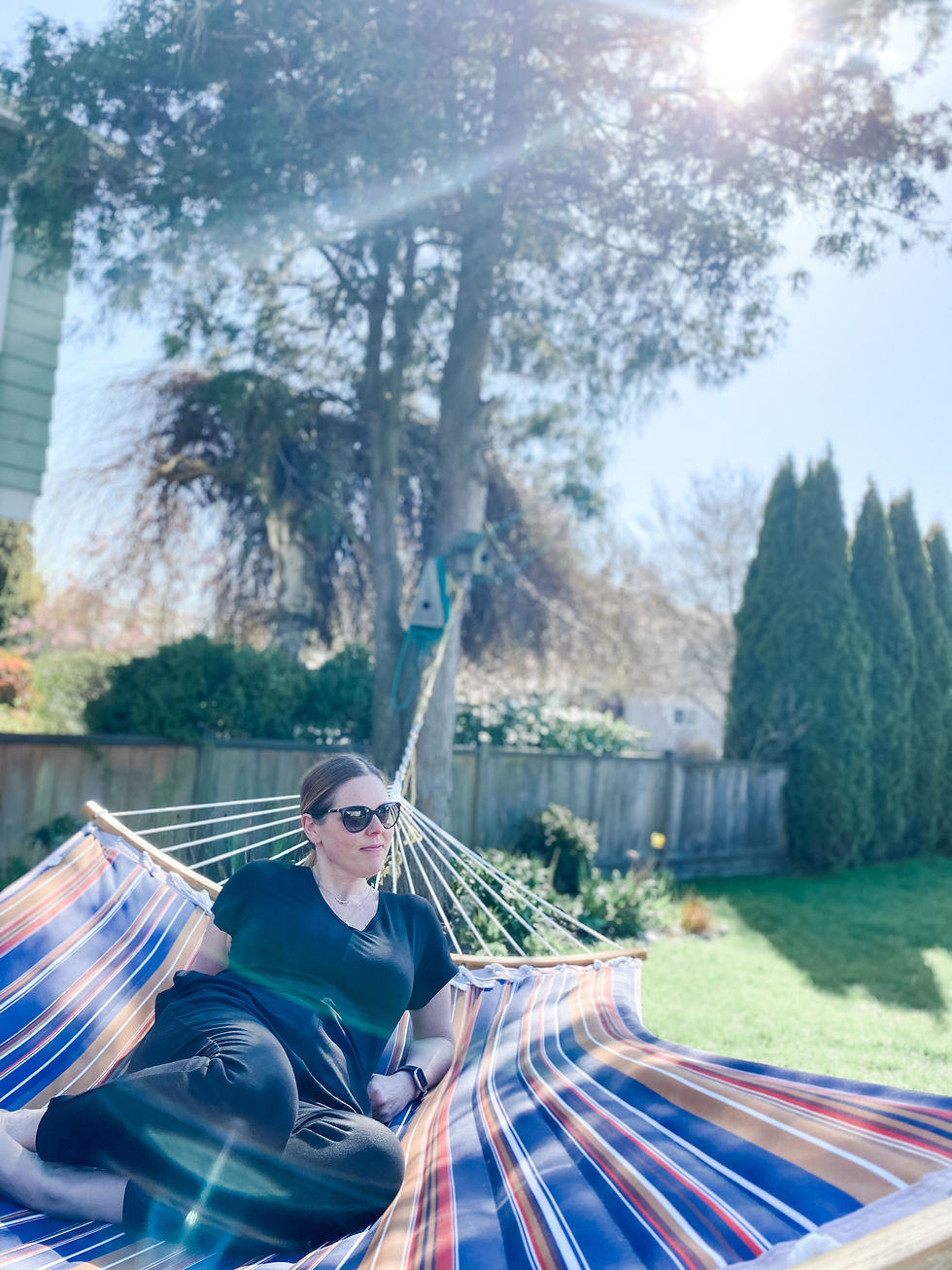When doing nothing is something
- Dr. Lisa Ghent, ND
- May 12, 2021
- 3 min read
Updated: May 12, 2021

A few weeks ago I posted an Instagram story about the guilt I feel doing ‘nothing’ and I had a huge realization. When you say out loud or even in your head that you’re ‘doing nothing’ it sounds unproductive and unimportant. It means that you’ve thrown everything that you ‘should’ be doing aside in favour of being lazy. Because really, who has time to do nothing, especially now that so many are working from home and there is no shortage of stuff that can be done.
I would like to make a case that doing nothing should regularly be ON your to-do list. With the evolution of society and the pervasiveness of technology we are more inundated than we’ve ever been with both passive and aggressive messaging that our brains should be busy all the time, regardless of age (hello #HustleCulture). On top of that, the boundaries between work and home have been considerably blurred in the last year and so it’s harder than ever to take mental breaks, even if we prioritized them.
What I have observed in my practice is that the #1 thing people wish they had more of is time. I am frequently told by patients that they would relax more if only they didn’t have so much to do. In reality, most of us have disposable time, it’s just that now we spend this time scrolling on social media platforms or shopping online.
According to the 2021 global report from Hootsuite that looks at internet users aged 16 to 64, users worldwide spend an average of 3 hours and 24 minutes daily watching television and/or streaming, and an average of 2 hours and 25 minutes daily using social media. In Canada that average is 1 hour and 46 minutes daily, with this number continuing to grow year after year. That is the equivalent of over 26.5 days a year; almost a month a year spent on social media. What these reports clearly indicate is that we have time, we just choose to spend it on other things.
I am also frequently told that being on social media or watching television is downtime, but the evidence of what online platforms do to our chemistry would argue that position. A University of Pennsylvania study examined social media use and found that users are driven to it for fear of FOMO (fear of missing out), but even just three weeks of limited social media use decreased depression and loneliness. It’s also been shown through research that interactions with social media can trigger similar chemical reactions in the body that are caused by gambling and recreational drugs (and not in a good way). Social media notifications increase the brain neurotransmitter dopamine which triggers your reward pathway, according to a researcher from Harvard University.
Additionally, it’s important to consider the impact of screen time on cortisol regulation. Cortisol is a necessary stress hormone that when regulated gives us energy through the day, allows us to respond appropriately to acute stressors, and helps us sleep restfully through the night. One of the main reasons I talk to people about downtime is its role in regulation of cortisol levels and stress. Studies have shown that spending more than 3 hours a day on devices over time will chronically lower cortisol levels, which then reduces your body’s ability to cope with stress and then the perception of stress also increases. In my experience, when people perceive more stress in their lives, both anxiety and depression increases.
So how do we do nothing?
First of all, we make it something. Doing nothing isn’t a waste of time when it’s viewed in the context of mental wellness. Lets collectively start thinking about downtime as something real and necessary in our lives. Then we prioritize it over other obvious time fillers such as use of screens and social media. When was the last time you waited in a line and weren’t scrolling on your phone? Decreasing mindless screen time is a great place to start. It’s ok to stand in a line for 5 min and not do anything. After we prioritize it, we make time for it. This could be in small chunks every day or large chunks on days off. Use this time for conscious resting. Resting could include meditation, yin yoga, listening to music, reading a physical book, going for a relaxing walk in nature, or just . You may feel antsy at first when you try any of these activities, and that’s normal and ok. Like any new skill or activity, it takes time for it to feel effortless. The good news is that before technology exploded, we did this all the time, so it’s just a muscle we have to flex more often and it will come back to us.

#drlisaghent #lifewithdrlisa #naturopath #naturopathy #naturopathicmedicine #naturopathicdoctor #naturopathlife #holisticcoach #holisticmanagement #holisticpractitioner #ladner #ladnerbc #deltabc #discoverladner #welovedelta #healthprofessional #inspirationalspeaker #motivationalspeakers #prenatalcare #postnatalcare #communitylove #holisticlifestyle



Comments